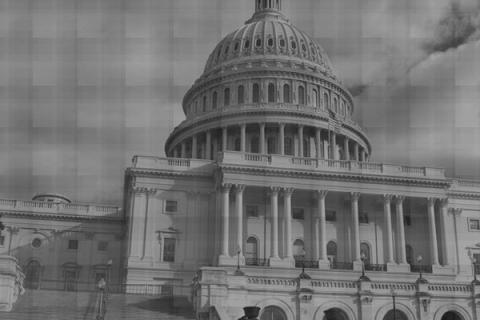Hundreds of activists from across the country gathered in New York City on Monday for the launch of No Labels, a new advocacy organization that aims to foster civility in our increasingly polarized political environment and to provide a political voice for the millions of Americans who consider themselves moderates or centrists. Ironically, the group has already succeeded in uniting partisan Democrats and Republicans . . . in opposition to No Labels!
The highly-publicized event featured panel discussions and speeches by prominent politicians and well-known media figures, and was noteworthy for its inclusion of Democrats, Republicans and Independents alike. The event’s two panel discussions – which included the likes of Joe Scarborough, Evan Bayh, David Gergen, Michael Bloomberg, Charlie Crist and California's Abel Maldonado – focused on the causes and effects of hyper-partisanship and the necessity of reforms to the redistricting process and the primary system.
However, the day’s schedule left plenty of time for attendees to network and strategize. They have their work cut out for them. The organization has a number of ambitious goals it aims to achieve over the course of the next year, including expanding its membership to 1 million individuals, and founding chapters in all 435 of the nation’s congressional districts as well as on college campuses across the country.
Just as Independents are marginalized by Democratic-Republican party politics even though they constitute a significant proportion of the electorate, our nation’s political discourse is dominated by conservatives and liberals, though over one-third of Americans consider themselves moderates. However, despite persistent speculation that No Labels will provide the organizational infrastructure for an Independent presidential candidate in 2012, the organization’s leadership has consistently stated that it does not aim to build an Independent alternative to the Democratic and Republican parties, but rather seeks to galvanize a movement to “change the culture in Washington” by organizing support for politicians who “put their labels aside and work across the aisle to solve problems.” As one of the organization’s founders, Jon Cowan, explained in his discussion of how to build and grow the movement, No Labels plans to bolster sitting politicians who seek common ground across party lines, co-sponsor legislation introduced by members of another party, and lead by example in maintaining a civil political discourse.
Ironically, the group has already succeeded in uniting partisan Democrats and Republicans in opposition to the effort to build a movement of moderates. Many conservative Republicans have begun to echo Rush Limbaugh, who alleges that No Labels is a “liberal front group.” On the other hand, it is not difficult to find Democrats who are of the opinion that the group will effectively redefine ‘conservatism’ as ‘centrism,’ as was recently asserted at the prominent liberal Democratic blog Hullabaloo.
In response to the organization’s launch, one of the most common criticisms leveled by Republicans and Democrats alike is that No Labels is “unserious.” At the influential Republican website Red State, CNN contributor Erick Erickson summed up his take on the group under the title “An Unserious Circle of Smug Seriousness.” At Salon, the self-described “typical effete coastal liberal elitist” Alex Pareene submitted a piece on “The Unseriousness of No Labels.” In the puerile commentaries of many such Republicans and Democrats, to be “serious” is to be a slave to the ruling two-party state, and to show requisite concern for the pet issues of that party’s most rabid partisans and vocal activists. Of course, such a reaction was only to be expected, as this is the “culture” that No Labels seeks to transform.
In a telling coincidence, the No Labels organization happened to celebrate its official launch on the same day a poll was released showing overwhelming public support for the bipartisan tax package negotiated by President Obama and Congressional Republicans. Needless to say, the plan is vehemently opposed by “extremists in both parties,” as one observer put it. Are they serious?

